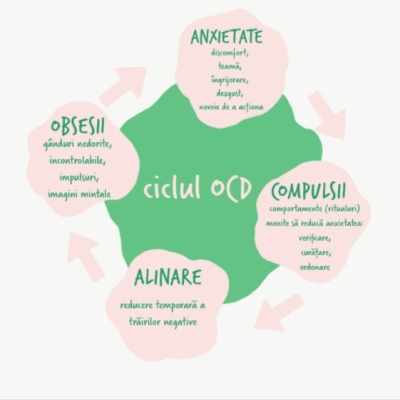Anxiety and I go way back. Probably since childhood. I cannot remember a time when it was not there in one form or another. Sure, some might say, anxiety is something we all face. It is a normal response to stress.
Nothing could be truer.
However, what do you do when your mind has this answer for almost everything that happens to you and even for the things that do not happen (those “ifs” or “maybes” that keep running through your mind in an endless horde of thoughts)? You learn to live with it. You learn to live together.
There is also the option of therapy, which I encourage, but I haven’t had the courage to go to a psychologist. A deeply negative experience distanced me from this option and still keeps me away from any practice. I promised myself that I would come back, if and when I found someone right for me, but that’s another story, with other entanglements.
The current situation makes those with anxiety disorders (already extremely stressed by everyday life) experience what is happening more intensely.
A few mornings ago I woke up suddenly, straight into an anxiety attack. My mind was convinced that I was breathing heavily lying on my back. I felt it with every breath. I stood still for a few minutes trying to check over and over if it was true. It seemed to be. But later, when my mind was occupied with the tasks at work, I realized that it was just an anxiety attack. It wasn’t the first and it certainly won’t be the last. An episode from a year or so ago comes to mind when, on a similar note, I thought I was breathing heavily. The sensation continued for almost half a day until I managed to calm down.
However, anxiety disorder is not strictly about reality and what happens to you, but what might happen to you. It is characterized by a persistent worry that is not tied to a particular circumstance. In other words, you worry almost all the time and think over and over again about things that others would consider too small to be important.
An example of this, which I face almost every day: shopping. Even though I know for sure that at that moment I have the money I need, either cash or card, I worry until I get to pay. I check my wallet over and over again trying to make sure, even though I know I have money, I know it’s okay. This is a somewhat familiar situation that I try to manage although it doesn’t always work out. Unfortunately, there are also times when you can’t anticipate anxiety.
Often social situations… give me a lot of trouble. Long after a discussion is over, I sit and go back over what I said, what others said, what I could have said differently or what I didn’t say at all. Sometimes I can waste hours worrying about something I said that I’m sure the other participants in the discussion have forgotten. Or, if it’s not social situations, then it’s a wandering thought about an illness or a family member and then my mind goes crazy again.

I had another episode recently, right at work. I had just come out of a meeting where I had to speak in English, a language I am almost native in. Well, due to anxiety raised to alarming heights, that day it seemed to me that I had done a horrible job, and long afterwards I sat and thought obsessively about how badly I had spoken and how I had misspoken, how I didn’t know some word or didn’t know a verb tense, although absolutely no one had noticed, and even if they had, they had not given it any importance.
And the examples could go on and on, but I think it’s enough to outline even just a moment with anxiety.
I see anxiety as a spiral of thoughts that wraps itself around you and squeezes you tighter and tighter until you can barely breathe.
Most of the time, it turns you against yourself, against your friends, because you live in constant fear, and that fear doesn’t even have a real basis. That’s why you’ll often hear the line “it’s all in your head” if you try to explain it to someone. Sure, it’s heard in connection with many mental disorders because, isn’t it true, “if you can’t see it, it doesn’t exist”!
Nothing could be further from the truth, but you don’t have to convince anyone that what you’re feeling and what’s happening to you is real. What you can do is seek profesional help and get a psychiatric diagnosis. It’s good to know exactly what’s going on in our brain so we can understand it, so we can understand ourselves.
Although I haven’t received a diagnosis yet, and only have a hunch (my own and my former psychologist’s), I plan to go back to therapy at the first opportunity when I find a therapist who can give me the necessary confidence, because everything is shaky now.
I am grateful, however, to be able to talk about my experience here, to be able to talk about what it’s like to live with an anxiety disorder and how it can affect your life down to the smallest detail.
I wish that in the near future going to the psychologist will not be so stigmatized and that we can talk about it more openly without attracting all kinds of stares.
Because mental health is just as (or maybe even more!) important as physical health, although it is often ignored or treated superficially by many of us.


